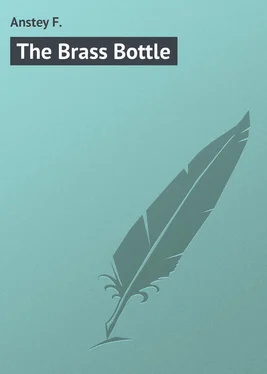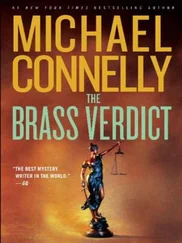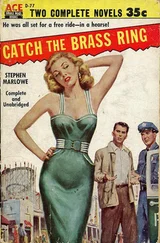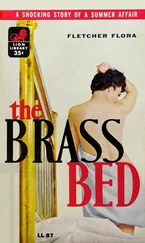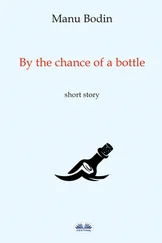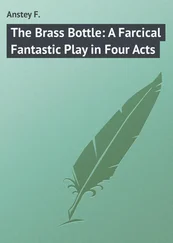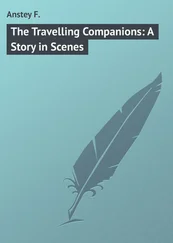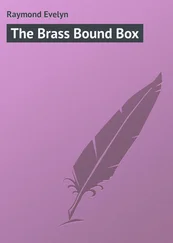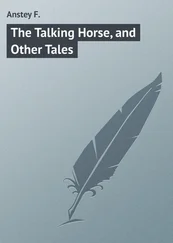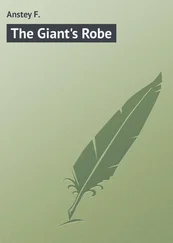F. Anstey - The Brass Bottle
Здесь есть возможность читать онлайн «F. Anstey - The Brass Bottle» — ознакомительный отрывок электронной книги совершенно бесплатно, а после прочтения отрывка купить полную версию. В некоторых случаях можно слушать аудио, скачать через торрент в формате fb2 и присутствует краткое содержание. Жанр: foreign_prose, на английском языке. Описание произведения, (предисловие) а так же отзывы посетителей доступны на портале библиотеки ЛибКат.
- Название:The Brass Bottle
- Автор:
- Жанр:
- Год:неизвестен
- ISBN:нет данных
- Рейтинг книги:3 / 5. Голосов: 1
-
Избранное:Добавить в избранное
- Отзывы:
-
Ваша оценка:
- 60
- 1
- 2
- 3
- 4
- 5
The Brass Bottle: краткое содержание, описание и аннотация
Предлагаем к чтению аннотацию, описание, краткое содержание или предисловие (зависит от того, что написал сам автор книги «The Brass Bottle»). Если вы не нашли необходимую информацию о книге — напишите в комментариях, мы постараемся отыскать её.
The Brass Bottle — читать онлайн ознакомительный отрывок
Ниже представлен текст книги, разбитый по страницам. Система сохранения места последней прочитанной страницы, позволяет с удобством читать онлайн бесплатно книгу «The Brass Bottle», без необходимости каждый раз заново искать на чём Вы остановились. Поставьте закладку, и сможете в любой момент перейти на страницу, на которой закончили чтение.
Интервал:
Закладка:
Ventimore gave this undertaking willingly enough, and they returned to the drawing-room. Mrs. Futvoye could hardly avoid asking Horace, in his new character of fiancé , to stay and dine, which it need not be said he was only too delighted to do.
"There is one thing, my dear – er – Horace," said the Professor, solemnly, after dinner, when the neat parlourmaid had left them at dessert, "one thing on which I think it my duty to caution you. If you are to justify the confidence we have shown in sanctioning your engagement to Sylvia, you must curb this propensity of yours to needless extravagance."
"Papa!" cried Sylvia. "What could have made you think Horace extravagant?"
"Really," said Horace, "I shouldn't have called myself particularly so."
"Nobody ever does call himself particularly extravagant," retorted the Professor; "but I observed at St. Luc that you habitually gave fifty centimes as a pourboire when twopence, or even a penny, would have been handsome. And no one with any regard for the value of money would have given a guinea for a worthless brass vessel on the bare chance that it might contain manuscripts, which (as any one could have foreseen) it did not."
"But it's not a bad sort of bottle, sir," pleaded Horace. "If you remember, you said yourself the shape was unusual. Why shouldn't it be worth all the money, and more?"
"To a collector, perhaps," said the Professor, with his wonted amiability, "which you are not. No, I can only call it a senseless and reprehensible waste of money."
"Well, the truth is," said Horace, "I bought it with some idea that it might interest you ."
"Then you were mistaken, sir. It does not interest me. Why should I be interested in a metal jar which, for anything that appears to the contrary, may have been cast the other day at Birmingham?"
"But there is something," said Horace; "a seal or inscription of some sort engraved on the cap. Didn't I mention it?"
"You said nothing about an inscription before," replied the Professor, with rather more interest. "What is the character – Arabic? Persian? Kufic?"
"I really couldn't say – it's almost rubbed out – queer little triangular marks, something like birds' footprints."
"That sounds like Cuneiform," said the Professor, "which would seem to point to a Phœnician origin. And, as I am acquainted with no Oriental brass earlier than the ninth century of our era, I should regard your description as, à priori , distinctly unlikely. However, I should certainly like to have an opportunity of examining the bottle for myself some day."
"Whenever you please, Professor. When can you come?"
"Why, I'm so much occupied all day that I can't say for certain when I can get up to your office again."
"My own days will be fairly full now," said Horace; "and the thing's not at the office, but in my rooms at Vincent Square. Why shouldn't you all come and dine quietly there some evening next week, and then you could examine the inscription comfortably afterwards, you know, Professor, and find out what it really is? Do say you will." He was eager to have the privilege of entertaining Sylvia in his own rooms for the first time.
"No, no," said the Professor; "I see no reason why you should be troubled with the entire family. I may drop in alone some evening and take the luck of the pot, sir."
"Thank you, papa," put in Sylvia; "but I should like to come too, please, and hear what you think of Horace's bottle. And I'm dying to see his rooms. I believe they're fearfully luxurious."
"I trust," observed her father, "that they are far indeed from answering that description. If they did, I should consider it a most unsatisfactory indication of Horace's character."
"There's nothing magnificent about them, I assure you," said Horace. "Though it's true I've had them done up, and all that sort of thing, at my own expense – but quite simply. I couldn't afford to spend much on them. But do come and see them. I must have a little dinner, to celebrate my good fortune – it will be so jolly if you'll all three come."
"If we do come," stipulated the Professor, "it must be on the distinct understanding that you don't provide an elaborate banquet. Plain, simple, wholesome food, well cooked, such as we have had this evening, is all that is necessary. More would be ostentatious."
"My dear dad!" protested Sylvia, in distress at this somewhat dictatorial speech. "Surely you can leave all that to Horace!"
"Horace, my dear, understands that, in speaking as I did, I was simply treating him as a potential member of my family." Here Sylvia made a private little grimace. "No young man who contemplates marrying should allow himself to launch into extravagance on the strength of prospects which, for all he can tell," said the Professor, genially, "may prove fallacious. On the contrary, if his affection is sincere, he will incur as little expense as possible, put by every penny he can save, rather than subject the girl he professes to love to the ordeal of a long engagement. In other words, the truest lover is the best economist."
"I quite understand, sir," said Horace, good-temperedly; "it would be foolish of me to attempt any ambitious form of entertainment – especially as my landlady, though an excellent plain cook, is not exactly a cordon bleu . So you can come to my modest board without misgivings."
Before he left, a provisional date for the dinner was fixed for an evening towards the end of the next week, and Horace walked home, treading on air rather than hard paving-stones, and "striking the stars with his uplifted head."
The next day he went down to Lipsfield and made the acquaintance of the whole Wackerbath family, who were all enthusiastic about the proposed country house. The site was everything that the most exacting architect could desire, and he came back to town the same evening, having spent a pleasant day and learnt enough of his client's requirements, and – what was even more important – those of his client's wife and daughters, to enable him to begin work upon the sketch-plans the next morning.
He had not been long in his rooms at Vincent Square, and was still agreeably engaged in recalling the docility and ready appreciation with which the Wackerbaths had received his suggestions and rough sketches, their compliments and absolute confidence in his skill, when he had a shock which was as disagreeable as it was certainly unexpected.
For the wall before him parted like a film, and through it stepped, smiling benignantly, the green-robed figure of Fakrash-el-Aamash, the Jinnee.
CHAPTER VI
Ventimore had so thoroughly convinced himself that the released Jinnee was purely a creature of his own imagination, that he rubbed his eyes with a start, hoping that they had deceived him.
"Stroke thy head, O merciful and meritorious one," said his visitor, "and recover thy faculties to receive good tidings. For it is indeed I – Fakrash-el-Aamash – whom thou beholdest."
"I – I'm delighted to see you," said Horace, as cordially as he could. "Is there anything I can do for you?"
"Nay, for hast thou not done me the greatest of all services by setting me free? To escape out of a bottle is pleasant. And to thee I owe my deliverance."
It was all true, then: he had really let an imprisoned Genius or Jinnee, or whatever it was, out of that bottle! He knew he could not be dreaming now – he only wished he were. However, since it was done, his best course seemed to be to put a good face on it, and persuade this uncanny being somehow to go away and leave him in peace for the future.
"Oh, that's all right, my dear sir," he said, "don't think any more about it. I – I rather understood you to say that you were starting on a journey in search of Solomon?"
Читать дальшеИнтервал:
Закладка:
Похожие книги на «The Brass Bottle»
Представляем Вашему вниманию похожие книги на «The Brass Bottle» списком для выбора. Мы отобрали схожую по названию и смыслу литературу в надежде предоставить читателям больше вариантов отыскать новые, интересные, ещё непрочитанные произведения.
Обсуждение, отзывы о книге «The Brass Bottle» и просто собственные мнения читателей. Оставьте ваши комментарии, напишите, что Вы думаете о произведении, его смысле или главных героях. Укажите что конкретно понравилось, а что нет, и почему Вы так считаете.
